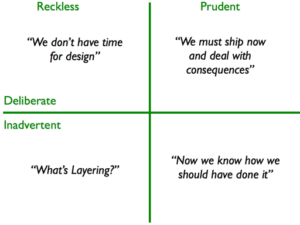Field Service Workers are regularly engaged to collect data or carry out inspections and assessments when visiting customer sites or remote area locations.
The data collected by Field Service workers, will be used by businesses who will analyse, process and build reports based on the large volumes of data collected. The accuracy and reliability of data collected is vitally important.
Traditionally businesses may have deployed mail surveys, telephone interviews, door-to-door surveys and interviews performed by Field Workers to collect data.
Digital Transformation is gradually changing many business operations and a great deal of processes which were traditionally executed manually are now accomplished making use of digital methods.
Technology is having a major impact not only how businesses research and analyse data, but primarily how data and information is collected. New tools and processes to data collection are improving data collection and analysis, leading to dramatic improvements and maximisation and optimisation of resources and operations.
Utilising Digital Data Collection methods enables organisations to not only obtain results quicker but also use the data to make data based decisions faster.
What is a Digital Form?
Digital Forms, also known as Mobile Forms are electronic versions of paper forms that can be completed using:- Laptop
- Tablet
- Smart Phone
- Any Mobile Device
Why Use Digital Forms ?
Digital forms can be a simple yet highly effective solution to overcome the challenges presented by paper based forms. Digital forms can be filled out directly using Smart phones and tablets in the field- When not connected to the internet or even low speed internet connections
- When working in remote locations
- To avoid damage, illegible handwriting or even lost and misplaced forms.
Advantages of Digital Forms
Time and Cost Saving
Using Digital Forms instead of paper-based forms provides a significant impact on improving time and cost savings on printing, storing and distribution costs. Businesses also spend a significant amount of time and money in Administration and double data entry processes incurred by paper based forms. Transferring information from paper based surveys is an error prone process.Digital Forms can save up to 20 man hours a week in administration costs
Improve data accuracy
Digital Forms can auto-populate fields based on prior data entered and also enable field-level validation. Digital data collection also eliminated data entry errors and data loss. Additional data can also be automatically be gathered such as Username, Geo-location and Time & Date.Real Time Reporting
The issue with Paper-based data collection is that there will always be a time lag before reports or decision can be made. With a digital platform, such as FieldElite – Mobile Workforce Management , data can be processed and analysed as it is collected. Providing data driven insights to provide proactive rather than reactive reports to improve and optimise operations in real time.It’s time to go Digital Forms!
Data Collection using Digital Forms will propel your company into the future and transform your data collection, data entry and analysis providing accurate data driven insights in real time. Digital forms are also mobile-optimized, updated in real time, and accessible by multiple parties, eliminating unnecessary meetings and emails. If you have a business and still haven’t used digital forms to gather information, contact Denizon today to organise a Demo of FieldElite – Mobile Workforce Management and discover how we can help you to transform your Field Service OperationsContact Us
- (+353)(0)1-443-3807 – IRL
- (+44)(0)20-7193-9751 – UK


